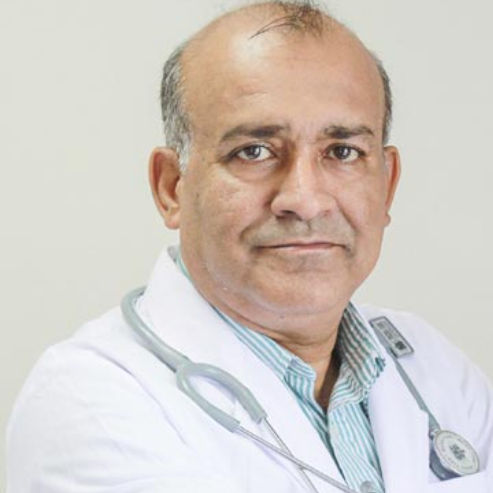Empyema Overview and Treatment Options
Know about the empyema , what it is, symptoms, causes, risk factors and treatment options. Learn about the recovery and prevention tips of the same and more.

Written by Dr. Mohammed Kamran
Reviewed by Dr. Shaik Abdul Kalam MD (Physician)
Last updated on 1st Sep, 2025

Introduction
Empyema is a serious medical condition that affects the lungs and requires prompt attention. If you or a loved one has been diagnosed with empyema, you may have questions about what it is, how it happens, and what treatment options are available.
This article will help you understand the condition in simple terms and guide you on the best steps to take for recovery.
What is Empyema?
Empyema is a condition where pus collects in the pleural space, the area between the lungs and the inner chest wall. Normally, this space contains a small amount of fluid to help the lungs move smoothly while breathing. However, when an infection occurs, this fluid can become infected and turn into pus, leading to empyema.
This condition is usually a complication of pneumonia (a lung infection), but it can also occur after surgery, chest trauma, or other infections. If left untreated, empyema can cause severe breathing difficulties and other health complications.
Consult an Pulmonologist for Personalised Advice
Symptoms of Empyema
Recognising the symptoms early can help in getting timely treatment.
Common signs of empyema include:
Persistent fever and chills
Chest pain, especially when breathing deeply or coughing
Shortness of breath
Cough with thick, foul-smelling mucus (sometimes with blood)
Fatigue and weakness
Loss of appetite and weight loss
If you experience these symptoms, especially after recovering from pneumonia or a chest infection, consult a doctor immediately.
Causes and Risk Factors
Empyema usually develops as a complication of:
Bacterial pneumonia (the most common cause)
Lung abscess (a pocket of pus in the lung)
Chest injury or surgery
Tuberculosis or other infections
Some people are at higher risk, including:
Those with weakened immune systems (due to diabetes, HIV, or chemotherapy)
People with chronic lung diseases like COPD
Individuals who have recently had pneumonia or lung surgery
How is Empyema Diagnosed?
If your doctor suspects empyema, they may recommend the following tests:
1. Chest X-ray or CT scan – To see fluid buildup in the pleural space.
2. Ultrasound – Helps locate the exact area of fluid collection.
3. Thoracentesis – A small needle is used to remove fluid from the chest for testing.
4. Blood tests – To check for infection and overall health.
Early diagnosis is crucial to prevent complications like lung scarring or sepsis (a life-threatening infection).
Get Your Health Assessed
Treatment Options for Empyema
The treatment depends on how severe the condition is. The main goals are:
1. Draining the infected fluid
2. Treating the infection with antibiotics
3. Helping the lung expand properly again
1. Antibiotics
Since empyema is caused by bacteria, strong antibiotics are given intravenously (through a vein) to fight the infection. The type of antibiotic depends on the bacteria causing the infection.
2. Draining the Pus
Thoracentesis – A needle is inserted to remove fluid.
Chest tube drainage – A small tube is placed in the chest to drain pus over several days.
Surgery (VATS or Open Surgery) – If the pus is thick or the infection is severe, a surgeon may need to remove it through a minimally invasive procedure (VATS) or open surgery.
3. Supportive Care
Pain relief – Medications to ease chest pain.
Breathing exercises – Helps the lungs recover fully.
Proper hydration and nutrition – Supports the immune system.
Recovery and Prevention Tips
Recovering from empyema takes time, but these steps can help:
Complete the full course of antibiotics – Even if you feel better, stopping early can lead to relapse.
Follow up with your doctor – Regular check-ups ensure the infection is fully cleared.
Practice deep breathing exercises – Helps prevent lung stiffness.
Stay hydrated and eat a balanced diet – Supports healing.
Avoid smoking – Smoking weakens the lungs and increases infection risks.
When to Seek Emergency Care
If you experience:
Severe chest pain
High fever that doesn’t go down
Extreme difficulty breathing
Confusion or dizziness
Seek emergency medical help immediately.
Can Empyema Be Prevented?
While not all cases can be prevented, you can reduce the risk by:
Getting vaccinated (pneumonia and flu vaccines help).
Treating lung infections early (don’t ignore persistent coughs or fever).
Practicing good hygiene (washing hands, avoiding sick people).
Final Thoughts
Empyema is a serious but treatable condition. With timely medical care, most people recover fully. If you notice symptoms, know the ways to prevent it and reduce the risk. Consult a doctor, stay alert and contact doctor to stay healthy.
Consult an Pulmonologist for Personalised Advice
Consult an Pulmonologist for Personalised Advice

Dr. R. Nithiyanandan
Pulmonology/critical Care Specialist
6 Years • MBBS, MD Internal Medicine , DM Pulmonary and critical care medicine
Chennai
Apollo Hospitals Greams Road, Chennai
(25+ Patients)

Dr. Mary Susan K S
General Physician/ Internal Medicine Specialist
13 Years • MBBS, MD INTERNAL MEDICINE
Bengaluru
Apollo Clinic, Sarjapur Road, Bengaluru

Dr Vishwa Vijeth K.
Pulmonology Respiratory Medicine Specialist
8 Years • MBBS, MD ( Respiratory Medicine)
Bangalore
Apollo Clinic Bellandur, Bangalore
Dr. Preeti Kathail
General Physician/ Internal Medicine Specialist
17 Years • MBBS, PGDHHM
Bangalore
Apollo Clinic Bellandur, Bangalore
(25+ Patients)

Dr. Dilip Joseph Wilson
General Physician/ Internal Medicine Specialist
30 Years • MBBS, DT M&H, DFFP, DIP.IIST
Bengaluru
Apollo Clinic, Sarjapur Road, Bengaluru
Consult an Pulmonologist for Personalised Advice

Dr. R. Nithiyanandan
Pulmonology/critical Care Specialist
6 Years • MBBS, MD Internal Medicine , DM Pulmonary and critical care medicine
Chennai
Apollo Hospitals Greams Road, Chennai
(25+ Patients)

Dr. Mary Susan K S
General Physician/ Internal Medicine Specialist
13 Years • MBBS, MD INTERNAL MEDICINE
Bengaluru
Apollo Clinic, Sarjapur Road, Bengaluru

Dr Vishwa Vijeth K.
Pulmonology Respiratory Medicine Specialist
8 Years • MBBS, MD ( Respiratory Medicine)
Bangalore
Apollo Clinic Bellandur, Bangalore
Dr. Preeti Kathail
General Physician/ Internal Medicine Specialist
17 Years • MBBS, PGDHHM
Bangalore
Apollo Clinic Bellandur, Bangalore
(25+ Patients)

Dr. Dilip Joseph Wilson
General Physician/ Internal Medicine Specialist
30 Years • MBBS, DT M&H, DFFP, DIP.IIST
Bengaluru
Apollo Clinic, Sarjapur Road, Bengaluru
